I need a code example or library which would parse Accept-Language header and return me preferred language.
RFC2616 states that:
The Accept-Language request-header field is similar to Accept, but restricts the set of natural languages that are preferred as a response to the request. Language tags are defined in section 3.10.
Accept-Language = "Accept-Language" ":" 1#( language-range [ ";" "q" "=" qvalue ] ) language-range = ( ( 1*8ALPHA *( "-" 1*8ALPHA ) ) | "*" )Each language-range MAY be given an associated quality value which represents an estimate of the user's preference for the languages specified by that range. The quality value defaults to "q=1".
Further reading shows that there are too many "optional", "should", "may" and other turns of speech that prevent me from reinventing the wheel - all I want to know is what language user prefers, any browser answers this question billion times a day.
Any code snippet in any language (except Lisp and Assembler please) would be helpful.
Many thanks in advance!
